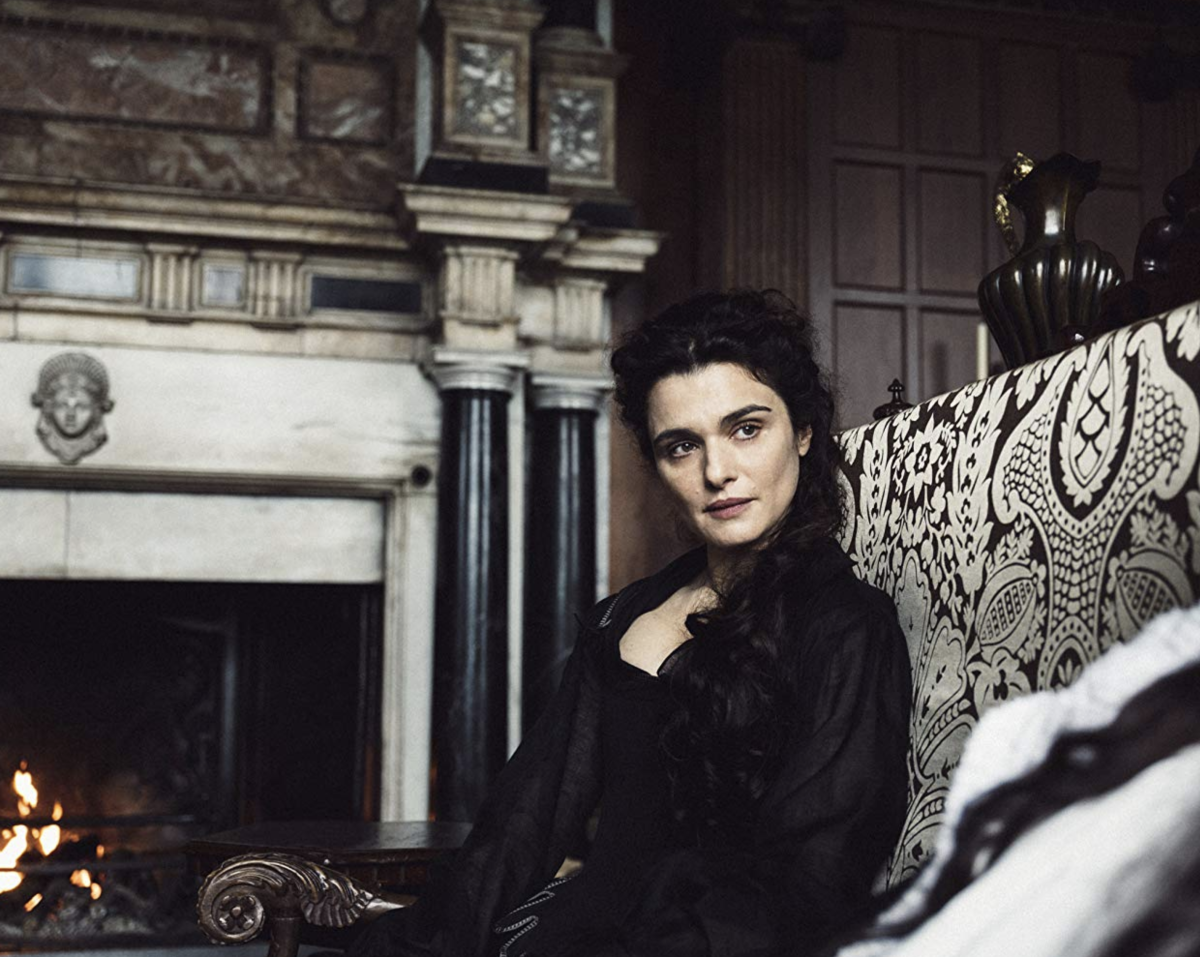If you’re at all familiar with Yorgos Lanthimos, you’ll know not to expect “The Favourite” to be one of the dry, self-righteous period pieces that often fill movie theaters in the run-up to awards season. Since he began working with high-profile actors in English-language films like “The Lobster” and “The Killing of a Sacred Deer,” the Greek director has established a distinct love it or hate it style. His work often spans detached, quietly brutal worlds where the absurdity of it all allows sharp glints of emotion to poke through. “The Favourite” is easily Lanthimos’ most accessible film, but make no mistake — his idiosyncrasies and biting wit are on display to delicious effect.
An ornately filthy, salacious take on historical events, we open on early 18th-century England. The country is embroiled in an exhaustive war with France, but the action of this particular story takes place far from the front lines. “The Favourite” unfolds almost entirely within the royal palace, where the preening royal court entertain themselves by racing prized ducks and pelting naked men with fruit.
Queen Anne herself (Olivia Colman in a knockout performance) leads a disheveled and petulant life of pomp and circumstance. She’s a woman who, without Colman’s commanding chops as both a comedic and dramatic actor, could easily come off as a brash caricature. Largely immobile due to nasty bouts of gout, Anne is prone to childish tantrums in and outside of her private quarters — where she insists on keeping 17 rabbits as placeholders for the children she’s miscarried. When the queen gifts her childhood friend Lady Sarah (Rachel Weisz) with a palace, she lets it slip that she hasn’t even been aware that the British war is still going on.
As Anne’s health worsens, it’s Sarah — who has grown into the queen’s lover and closest confidant — who cooly governs in her stead. When her younger cousin Abigail (Emma Stone) arrives at the palace mud-streaked and in search of employment, Sarah is far too busy hiking up taxes to give her much more than a condescending glance.
But after Abigail’s forays into a nearby forest turn up herbs that single handedly soothe Anne’s gout, the would-be ingenue quickly climbs from lowly maid to lady-in-waiting. Light and indulgent where Sarah is not, she coyly worms her way into the queen’s graces. For perhaps the first time, Sarah’s long-standing grips on the queen’s bed and political conscience are soon turned upside down.
Stone brilliantly shifts in front of the audience as Abigail’s shrewdness becomes increasingly apparent. There isn’t a weak link in the principal cast, but I’d devote entire rewatches to appreciating how much of her rise in power is told exclusively through watchful, corner-of-frame observations — what she’s able to express with her eyes alone is extraordinary.
As Sarah and Abigail’s schemes for favoritism escalate, their Machiavellian battle of wills is only exacerbated by the film’s oscillation between warped fish-eye wide shots and tight views of the three leads. It’s here that deeper, more vulnerable shades of Weisz’s Sarah start to emerge, as the high lady’s haughty assuredness masterfully bleeds into bewildered desperation.
It’s fascinating to watch how explicitly painful and mirthful these women’s stories come across onscreen. It’s true that much of the runtime is dedicated to vicious spats and hilariously blunt title cards that introduce each segment of “The Favourite” — including titles like “This Mud Stinks” and “I Dreamt I Stabbed You in the Eye.” But the three leads are still very much grappling with personal vendettas and unwelcoming power structures outside of their control. Anne has been groomed by court flattery for so long that she doubts anyone’s ability to truly care for her. Meanwhile, Sarah’s self-serving plotting is undercut by feelings of real love and affection. Abigail is clamoring to regain her status as an aristocrat after her gambling father left her devoid of comfort or prospects.
Even as they chafe against a claustrophobic 18th-century patriarchy, it’s incredibly satisfying to watch a film based around three women flattering and fighting and sleeping with one another. Original screenwriter Deborah Davis’ sharp dialogue, combined with Lanthimos’ peculiar brusqueness, allows the three leads of “The Favourite” to be imperfectly compelling.
In this way, “The Favourite” rings much truer than many didactic, blandly realistic on-screen portrayals of historical and gay women. Historical figures’ plights are often painted as Shakespearean exercises in tragedy, or heightened extensions of an acclaimed director’s filmmaking ambitions. Here, as audiences consider whether or not to laugh at these women’s power struggles, their histories feel infinitely funnier, infinitely grosser and infinitely better.
_Edited by Joe Cross | [email protected]_








